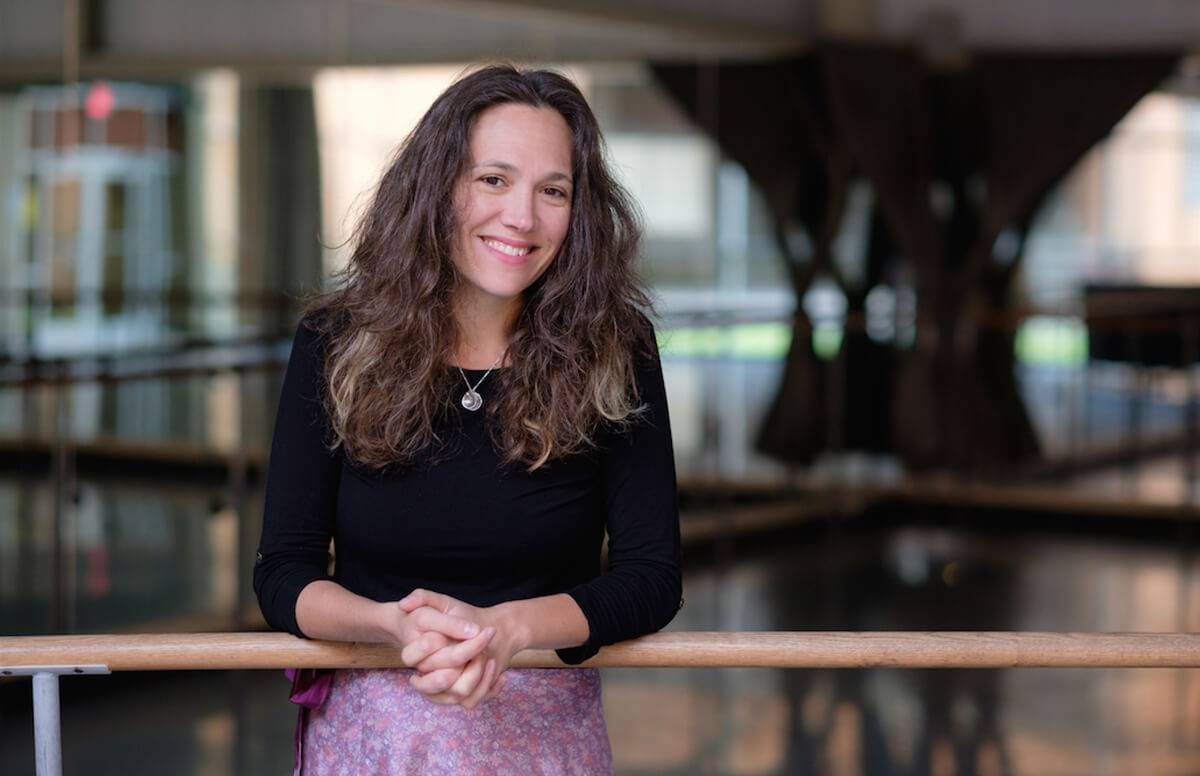Christina Soriano: The Impact of Improvisational Dance on Parkinson's
This 2018 Influencer believes artists and scientists can learn from each other
Christina Soriano, associate professor of dance and director of the dance program at Wake Forest University in Winston-Salem, N.C., as well as associate provost of the arts for the school, is a 2018 Influencer in Aging and the founder of IMPROVment ®, a program focused on physical and mental fitness for those with neurodegenerative diseases. Since 2012, Soriano has led free weekly community dance classes in Winston-Salem for people living with Parkinson’s disease (PD) and Alzheimer’s disease.

Along with Christina Hugenschmidt, an assistant professor of gerontology and geriatric medicine at Wake Forest University Baptist Medical Center, Soriano recently received a $1.5 million grant from the National Institutes of Health for a three-year clinical trial focused on improvisational dance. The goal is to learn how dance affects different body systems and to determine whether the movement aspect or the social engagement aspect — or both — affect quality of life in people with dementia.
Next Avenue: How did you first become interested in improvisational dance for those living with neurogenerative diseases?
Christina Soriano: My mentor, Glenna Batson, who is the emeritus professor of physical therapy at Winston-Salem State University, is a physical therapist, dancer and leading practitioner in the field of dance and movement. She knows how the benefits of dance and movement can benefit wellness.
In 2012, she invited me to be part of a study she was doing about balance. I had no previous scientific experience — I trained as a performer and choreographer. But I had always admired her work, and the opportunity came at a point where I was ready for a new way to fall in love with my art.
I have also admired the work of David Leventhal of the Mark Morris Dance Group in New York City; he’s the director of the Dance for PD® which started as a collaboration between the Mark Morris Dance Group and the Brooklyn Parkinson Group. They created a program that is now international; dance is recognized as an effective tool for people living with Parkinson’s.
In the IMPROVment classes, what are the strategies used that make it comfortable and enjoyable for the participants?
The classes are based on a series of auditory prompts or cues. The improvisational nature of the experience gives everyone the opportunity to create exercise while honoring where they are physically. They can be more confident in their movements. They aren’t being asked to learn something. There are no 'wrong' movement choices. There is no judgment.
An important clarification to make is that this is not dance therapy. I am not a trained dance therapist, and there is also a danger in thinking that this type of movement is only for a prescribed period of time, as therapy would be. We call this a practice — taking a movement class becomes not only part of your day, but part of your life.
I really observe a different type of physical confidence that happens after class ends. The strides and gait lengths of the participants may be increased. I also believe the social benefits, as much as the physical ones, are huge. And there is laughter. They leave a little bit renewed — I know I do, too.
Another benefit of these classes is that the caregivers participate. The pair shares a movement experience that is joyful in so many ways. The idea of who has PD and who doesn’t have it goes away.
How do you believe that an art form, like dance, can impact aging?
In May, we hosted the Aging Re-Imagined Symposium 2.0 at Wake Forest; the first one was held in 2016. The event came about because I started working with scientists, like Christina, and as the artist in the room in our meetings, I realized there is so much that artists and scientists can learn from each other. Aging Re-Imagined features speakers and presentations that look at aging from so many different perspectives.
The event is open to the community, as well as faculty members and researchers. It is our goal to allow those in the fields of arts and of science to meet to dialogue together. In my case, my lab is a dance studio.
Where do you find the most joy in working with dancers who have PD (or other neurodegenerative diseases)? What have you learned?
An incredible community has been created. The class has become like a family. We celebrate birthdays and anniversaries. Some of my dance students from Wake Forest lead classes at an adult day center in Winston-Salem with individuals who are far along in their dementia journey. I really believe that it’s important for the younger and older generations to be part of a creative process together.
Shy of becoming a parent, this has been the most meaningful experience of my life. It all began with an invitation to do something I didn’t know anything about, but I want to continue doing this work, bringing it out there to others.
Dance is a deep reflection of our lives. What we practice in the studio is part of humanity.


